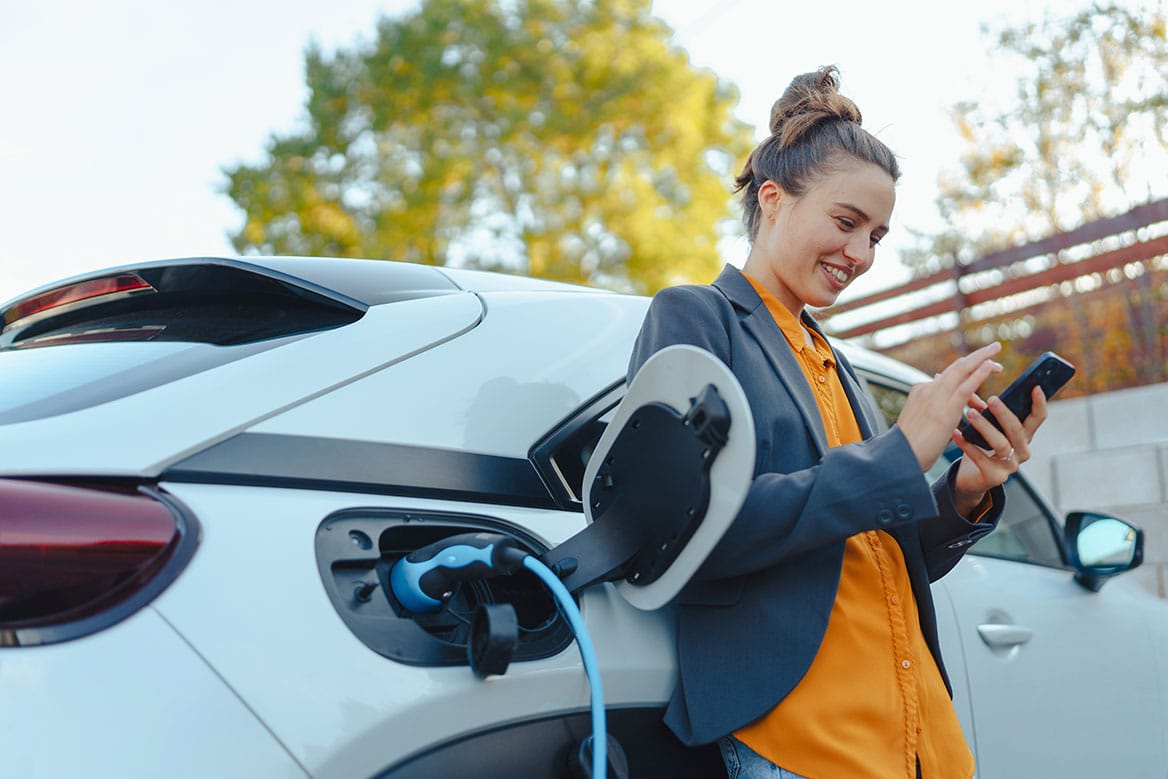The road to electric is no longer just an environmental choice—it’s becoming a practical and increasingly strategic one for drivers and businesses alike. But with evolving technology and uncertain economic conditions, making the switch can feel like uncharted territory.
That’s where we at Close Finance come in – working behind the scenes with local dealers, businesses, and individuals to make low-emission driving more accessible. And while the electric vehicle (‘EV’) market is maturing, making the right choice is far from straightforward.
A changing market
Demand for electric vehicle finance in Jersey has grown steadily over recent years, driven by early adopters and green-conscious businesses eager to align with the Government of Jersey’s carbon neutrality ambitions. However, recent months have seen a subtle shift in the pace of growth.
“The end of the local government grant scheme and broader economic pressures have definitely created a more cautious borrowing environment,” says Close Finance’s Cleone Steadman. “That includes car finance too. People are asking more questions, taking time to weigh up long-term value, and generally being a bit more pragmatic in their choices.”
For some consumers, falling second-hand EV values and uncertainty around battery life are also prompting pause. But businesses continue to take a longer-term view—seeking sustainable fleet upgrades as part of wider operational strategies to future-proof their models and reduce emissions.
Looking beyond the price tag
What makes EV finance different from traditional car finance isn’t just the car—it’s how you assess value.
“Electric vehicles depreciate differently. They have lower running and maintenance costs, but the tech is still evolving fast,” says Cleone. “We work closely with dealers to forecast resale values and structure products that reflect those dynamics.”
In practice, that means flexible terms, options like balloon payments, and products tailored to both new and used EVs. While Close Finance doesn’t currently offer Personal Contract Purchase (PCP) on fully electric vehicles, they do for plug-in hybrids and hybrids, offering a stepping-stone for those not ready to go fully electric.
Staying in step with the market
One of the things that sets Close Finance apart is its constant focus on keeping pace with market trends and customer needs.
“The world of mobility is changing rapidly,” says Cleone. “From the growing interest in hydrogen technology to changes in used car availability, we monitor developments closely to ensure our product range continues to meet real-world demand.”
That responsiveness means listening to clients—who are becoming more cost-conscious and sustainability-minded—and adapting accordingly. Whether that’s launching a new product, adjusting terms, or finding bespoke solutions for specialist vehicles, the aim is always the same: offer the right support at the right time.
Sustainability in action
Financing EVs is part of a wider strategy for Close Finance, who are expanding their green finance products to support broader sustainability goals. Tailored lending options now cover not just electric vehicles but a range of energy-efficient investments for both individuals and companies.
“EVs are often a customer’s first step into green technology,” says Cleone. “We want to be an enabler of that transition—making it practical and affordable, not just aspirational.”
That philosophy extends into the commercial space too. Close Finance is actively supporting businesses looking to switch to electric fleets—not just with finance but with strategic advice on grant access, cost-saving opportunities, and sustainability goals.
A key part of that is their support for the new Better Business Grants recently launched by the Government of Jersey. Through this initiative, eligible businesses can apply for a grant covering 50% of an EV’s cost—and Close Finance can help fund the remaining half, significantly reducing the financial barrier to entry.
The bigger picture
One factor shaping Jersey’s vehicle market is stock. Since the pandemic, supply issues for new vehicles have led to increased demand for used models. For EVs, that’s created additional challenges.
“There’s strong demand, but sourcing the right vehicle can be difficult, especially for commercial customers with specific needs. That’s why having a finance partner who works closely with local dealerships and can make quick decisions is vital,” Cleone adds.
Backed by experienced colleagues in the UK, Close’s local team pride themselves on being agile and supportive, even when the request is a bit out of the ordinary.
“We’ve helped finance all sorts of vehicles over the years. If the numbers stack up and the customer is credible, we’ll try to find a solution—be it a small business van or even a rally car.”
Looking ahead
As Jersey continues its shift toward greener transport, Close Finance plans to evolve its role from traditional lender to strategic partner.
“We’re here to help people navigate a changing landscape. That means refreshing our product offerings to meet the market, maintaining strong relationships with dealerships and suppliers, and being ready for what’s next—whether that’s a rise in hydrogen vehicle demand or another shift in technology.”
In a market shaped by economic uncertainty, increasing regulation, and innovation, having a flexible finance partner could be the key to making progress. And as the Island looks to cut emissions, it’s clear the road ahead won’t just be electric—it’ll be collaborative.





